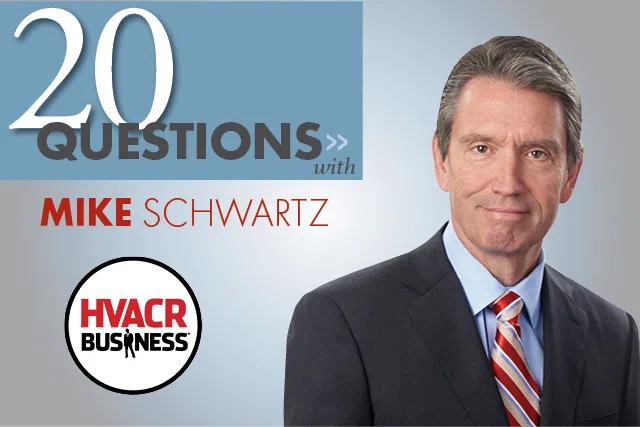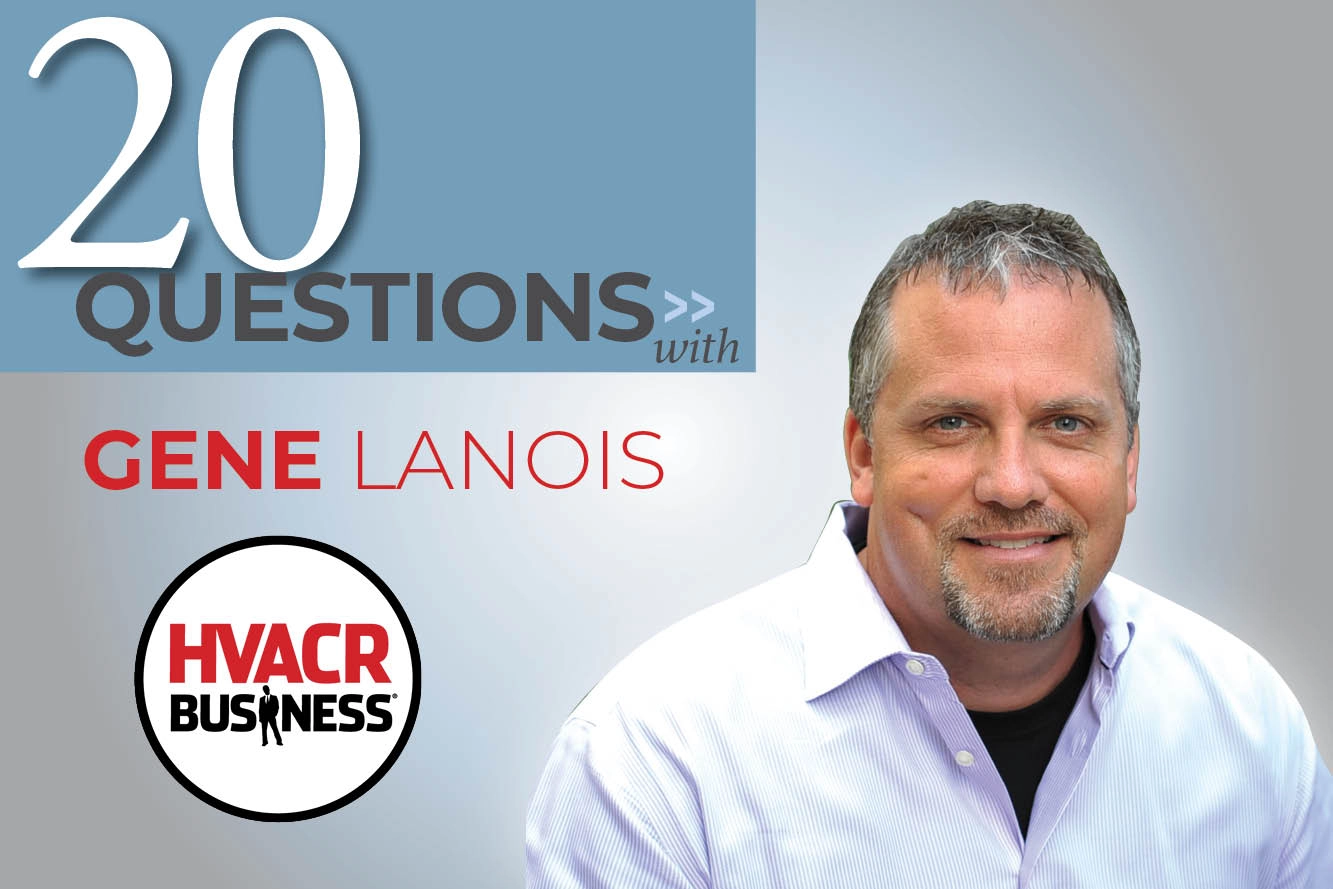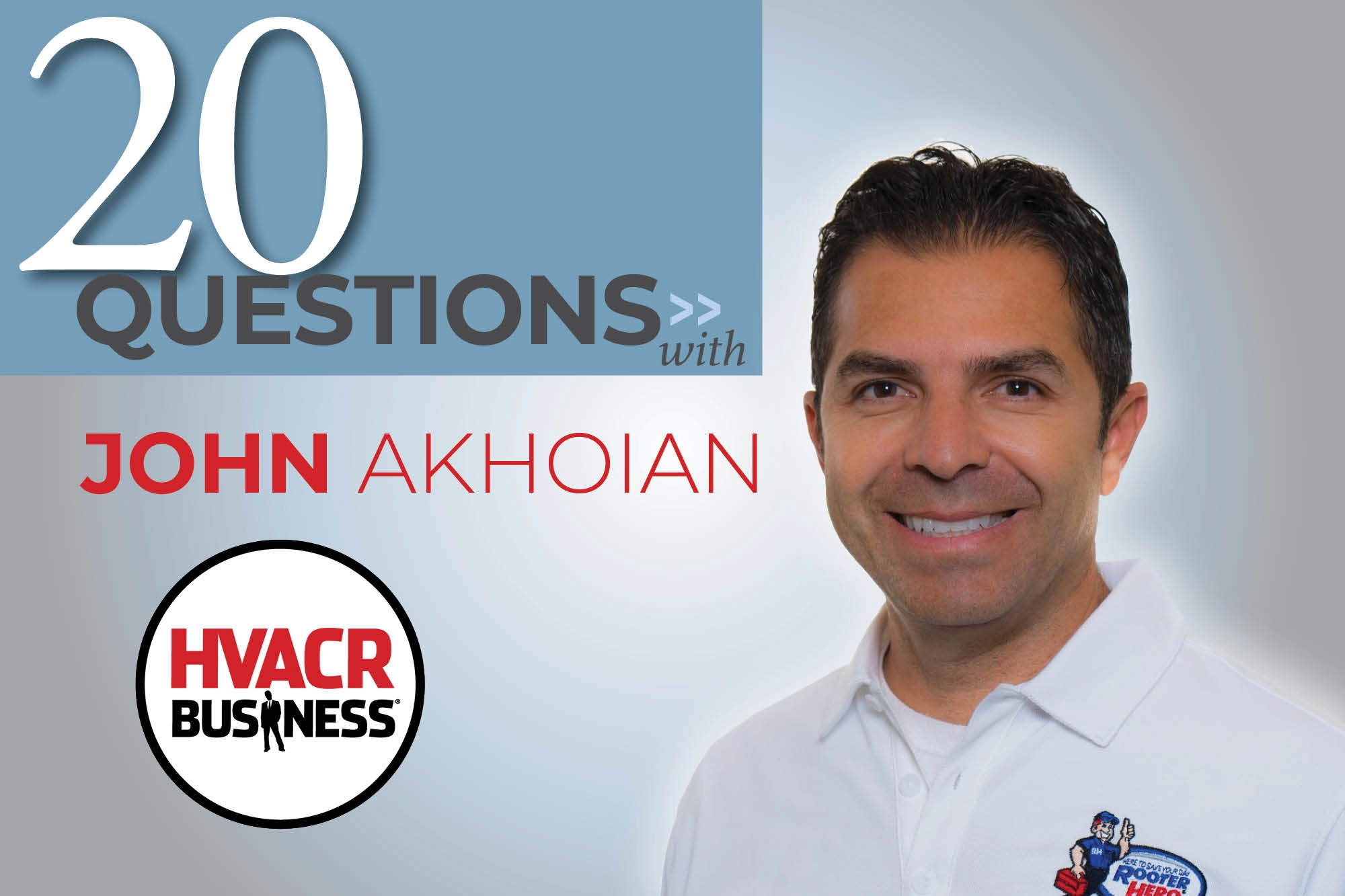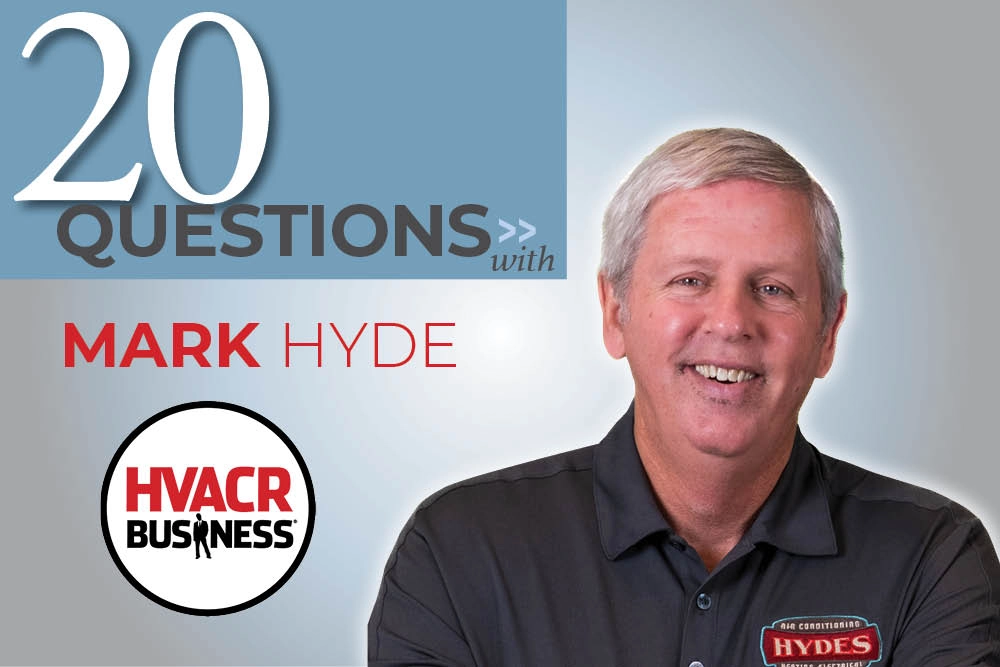We sat down with Mike Schwartz, CEO of Daikin Applied Americas, at the AHR Expo in Chicago. Schwartz discussed refrigeration and the environment, leading a large, diverse company and how contractors can differentiate themselves.
1. Where are you from?
I’m from the Midwest originally. I went to Iowa State University on a football scholarship and earned my engineering degree there.
2. Where was your first job?
It was a company named BOHN, a commercial refrigeration and air conditioning company. I was offered a position in their management trainee program in their international department. My goal was to make it through that program and possibly get into international business, which intrigued me.
3. Can we assume you made it through?
Yes, I was there for nine years, and then the business was bought by Lennox and I was with them for the next 15 years. I had great opportunities and with each move helped manage larger and larger businesses.
4. How did you come to work for Daikin?
When I left Lennox, I decided to try something different, and was recruited into the private equity sector managing a portfolio company. I did that for five years and got a call from an executive recruiter. The position sounded interesting and something at which I thought I could excel.
5. What was attractive about the opportunity?
What interested me most about Daikin and the opportunity was the company’s complete dedication to technology. They’re committed to making significant investments not only in the technical elements of R&D, but also in the people who really drive those activities. They also had a clear goal and objective. There was no debate. It was simply to be number one in the world in HVAC. Those two things cemented it for me.
6. Trane and Mitsubishi recently announced a joint venture — do you expect trends like that to continue?
It’s clear the Japanese, South Korean and Chinese companies have put a tremendous amount of focus, energy and resources behind VRV and mini-split technology, primarily because it’s the technology of choice outside the United States. I’m sure they looked at us, and the success that we are having, marrying conventional split system products with VRV and they likely thought ‘we need to more effectively compete in that arena.’
7. Why is the topic of refrigerants so polarizing?
Refrigerants are a political lightning rod. The prior administration had an objective to lower the environmental impact with GWP refrigerants through the SNAP process, in some cases using a hammer to try to drive the strategy through. The current administration has a different perspective on government intervention as it relates to environmental legislation.
8. What is Daikin’s position?
We have a strong belief in the importance of being a good environmental steward. We understand the impact we have relative to our carbon footprint — with our manufacturing and in the products we produce and how those impact the environment. We’ve set a goal for our business to achieve a 90 percent reduction in our CO2 footprint by 2050.
9. What’s your leadership philosophy?
I’ve been asked before and it’s never a simple one-dimensional answer. Number one is having great character and a strong moral compass. People need to know who you are and what you stand for. Another part is fundamental: lead by example. One of my favorite parts of leadership is coaching.
10. What attracts people to some companies and not others?
People want to join an environment where they can succeed. They have to understand the organization has a compelling proposition in the market and that others who surround them are dedicated to the cause and a unified team. They also want to see the company has the resources to do what needs to be done.
11. Executives are demand-rich, time-poor — where would you like to spend more time?
I would enjoy more time with product-creation people. They’re the ones who truly look at doing things differently to create new services, new technologies, new products. They are the lifeblood of our business.
12. What is your greatest responsibility to the company?
Providing clear direction and leadership for the organization. People want confidence in where the business is going, how we’re going to get there and how they fit into our strategy. If they can’t see how they support the strategy, then their hearts and souls are on the sidelines and that’s a huge waste.
13. How do you hold people accountable?
We developed a management system by which we set individual objectives for all of our salaried employees. We evaluate those formally twice a year. We follow up on these KPIs formally and informally throughout the year.
14. What’s the best business advice that you have received?
When I was young I worked for a guy who had an interesting management style. You’ll understand when I share the quote: ‘You’re going to have opportunities for leadership, just don’t screw up and you’ll be fine.’ (Laughs)
15. What do you look for in the next generation of leaders?
Character, integrity and a willingness to take risks when opportunities present themselves. You have to be willing to step in and take a calculated gamble, make an investment, possibly make a risky decision. Personally, it’s having the confidence in the people who I’ve surrounded myself with to carry the ball.
16. How did you assemble your management team?
It’s a bit of an art form. Many candidates can check all the boxes — experience, education, etc. The intangibles, however, are really important and that’s where the art is from an interviewing perspective. Chemistry is vital.
17. When do you get involved with the candidates?
If it’s a direct report I’m involved from the start. Positions that a level or two removed from my reports, I don’t get involved with until we have final candidates. I want to be involved in these decisions because these are the individuals who will ultimately move into our executive positions.
18. Do you have any favorite interview questions?
No, but I tend to ask people to tell a story about a disappointment and what they learned or a success and what made them proud of the accomplishment. Those types of questions tell me some things about how they are wired and what drives them and what doesn’t.
19. What is your favorite internal communication tool?
As hard as it is, sometimes my favorite is a face-to-face meeting. In my group, we have 3,500 people and regularly I have an all-hands-on-deck teleconference to share the state of affairs and how we’re doing. Additionally, I spend 70 percent of my time going into our plants, going to our sales offices, and just talking to people, listening to what issues and concerns they have. They appreciate the leadership out in the field.
20. Do you have management advice for contractors?
I think it’s important for contractors to differentiate themselves through technology, service, dependability or something else. Give yourself the ability to step above the fray and explain why you’re better than the other guys.






